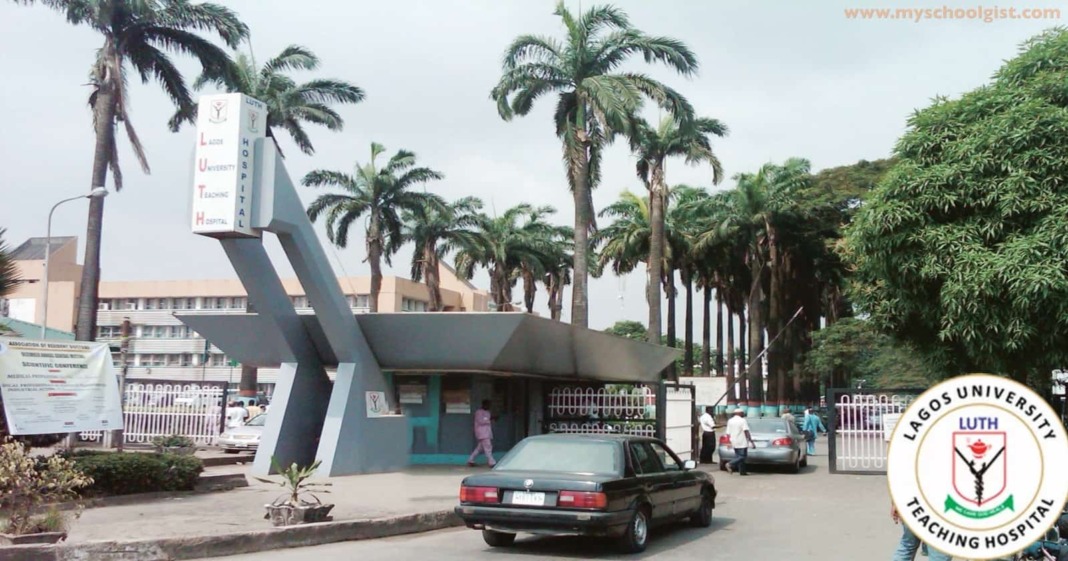Lagos, Nigeria – House officers at the Lagos State Teaching Hospital (LUTH) have sounded the alarm over poor working conditions following the tragic death of a fellow doctor, Dr. Umoh Michael, who allegedly worked for an exhausting 72 hours. The incident has ignited a debate on the demanding schedules and challenges faced by medical professionals.
Dr. Michael, a young and dedicated medical practitioner, reportedly passed away on September 17, after a grueling 72-hour call shift in LUTH’s Neurosurgery Unit. The circumstances of his death have sent shockwaves throughout the medical community. According to reports, he returned home after his demanding shift, intending to attend a church service, but tragically collapsed at the United Evangelical Church at around 11:00 a.m.
In a letter addressed to the Chief Medical Director of LUTH, Prof. Wasiu Lanre Adeyemo, the Association of Resident Doctors (ARD), LUTH chapter, raised several concerns. The doctors claimed that Dr. Michael’s roommate had witnessed him hardly sleeping in their shared apartment for the past week, as he was consistently on call and often returned home after surgeries and other duties in the Neurosurgery unit at around 3:00 a.m.
The letter also shed light on the challenges faced by house officers at LUTH, including bullying from senior colleagues, long and strenuous call hours without breaks, lack of proper accommodation, and inadequate sustenance during their demanding shifts.
In their demands, the doctors called for reforms in the working conditions of house officers. They insisted that those on call the previous day should either be allowed a half-day off or begin their duties later in the day to prevent excessively long working hours. Additionally, they urged that health checks at the start of house jobs should be made free or substantially subsidized for house officers.
Furthermore, the medical professionals appealed for a more supportive and friendly work environment, emphasizing that house officers should not be burdened with tasks that fall outside their medical duties, such as acting as porters, nurses, or patient attendants.
In response to these allegations and demands, LUTH’s Public Relations Officer (PRO), Omolola Fakeye, stated that they had not received official information about the doctor’s death or the alleged 72-hour shift. Fakeye assured that they would investigate the incident, emphasizing the importance of relying on medical reports to determine the actual cause of Dr. Michael’s demise.
The tragic loss of Dr. Umoh Michael has highlighted the critical need for improvements in the working conditions and support systems for medical professionals across Nigeria. It remains to be seen how LUTH and healthcare authorities will respond to these pressing concerns raised by the Association of Resident Doctors.
The grueling working conditions faced by house officersn hospitals have been a long-standing issue. These young doctors are often subjected to strenuous shifts, inadequate rest, and a lack of support. The death of Dr. Michael has reignited the debate over whether such conditions are acceptable in a modern healthcare system.
House officers, often fresh out of medical school, are the backbone of hospital care. They are responsible for crucial patient care tasks, including diagnosis, treatment, and monitoring. However, the extreme working hours and constant pressure they face can compromise patient safety and the well-being of these doctors themselves.
In Nigeria, the shortage of medical personnel, particularly in public hospitals, places enormous stress on healthcare workers. This shortage results in long hours and heavy workloads for house officers. The demands of the job can lead to fatigue, burnout, and increased risk of medical errors.
The tragic death of Dr. Michael serves as a stark reminder that addressing these issues is a matter of urgency. While it is essential to maintain high standards of medical care, it is equally crucial to provide a conducive work environment that ensures the well-being of healthcare professionals.
The demands made by the Association of Resident Doctors at LUTH are not unique to their institution. Similar concerns have been raised by medical professionals across the country. Healthcare authorities and government agencies must take immediate steps to address these issues comprehensively.
Improving the working conditions of house officers is not just a matter of fairness but a necessity for the effective functioning of the healthcare system. Adequate rest, reasonable working hours, and a supportive work environment are essential components of ensuring that doctors can provide the best possible care to patients.
Additionally, providing subsidized health checks and other benefits to house officers can contribute to their overall well-being. This support is especially important given the stressful nature of their jobs and the critical role they play in patient care.



